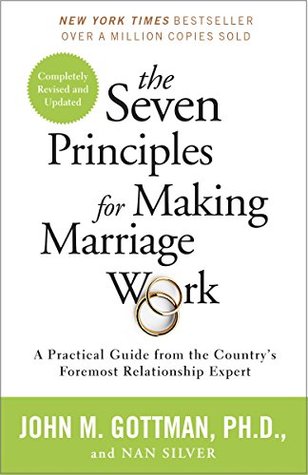More on this book
Community
Kindle Notes & Highlights
Perhaps the biggest myth of all is that communication—and more specifically, learning to resolve your conflicts—is the royal road to romance
and an enduring, happy marriage. Whatever a marriage therapist’s theoretical orientation, whether you opt for short-term therapy or long-term therapy, or regularly read relationship advice blogs, the message you’ll get is pretty uniform: learn to communicate better.
We all have issues we’re not totally rational about. We call these triggers “enduring vulnerabilities,” a term we borrowed from Tom Bradbury of UCLA.
Of course, a severe mental illness is another matter. You’re not a bad person if you end a relationship with a partner who is grappling with severe psychopathology and is unable to think and function independently.
80 percent of divorced men and women said their marriage broke up because they gradually grew apart and lost a sense of closeness, or because they did not feel loved and appreciated. Only 20 to 27 percent of couples said an extramarital affair was even partially to blame.
The determining factor in whether wives feel satisfied with the sex, romance, and passion in their marriage is, by 70 percent, the quality of the couple’s friendship. For men, the determining factor is, by 70 percent, the quality of the couple’s friendship. So men and women come from the same planet after all.
At the heart of the Seven Principles approach is the simple truth that happy marriages are based on a deep friendship. By this I mean a mutual respect for and enjoyment of each other’s company. These couples tend to know each other intimately—they are well versed in each other’s likes, dislikes, personality quirks, hopes, and dreams. They have an abiding regard for each other and express this fondness not just in the big ways but through small gestures day in and day out.
Because Nathaniel and Olivia have kept their friendship strong despite the inevitable disagreements and irritations of married life, they are experiencing what is known technically as “positive sentiment override,” or PSO, a concept first proposed by University of Oregon psychologist Robert Weiss. This means that their positive thoughts about each other and their marriage are so pervasive that they tend to supersede their negative feelings. It takes a much more significant conflict for them to lose their equilibrium as a couple than it would otherwise.
I call this connection attunement. The more highly skilled at achieving it that partners become, the more resilient their friendship and the more solid and promising their future. Some couples are naturals at attunement. But others (most of us!) need to work at it somewhat. It is well worth the effort. As partners


